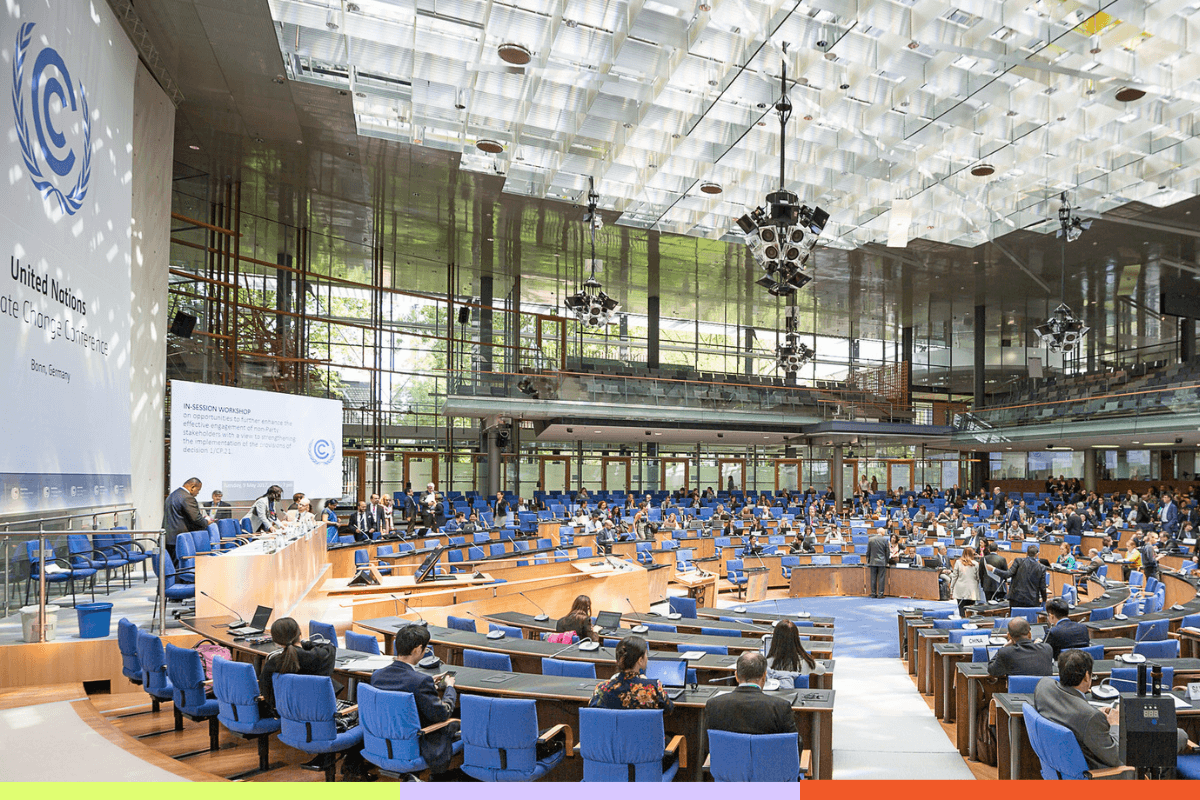GWL Voices’ Key Recommendations for the Bonn Climate Change Conference

Share
The 62nd sessions of the UNFCCC Subsidiary Bodies (SB62), held during the Bonn Climate Change Conference, are a crucial milestone on the road to COP30. These technical meetings play a key role in shaping the implementation of global climate agreements and in setting the stage for major negotiations ahead.
This year, the review and renewal of the Gender Action Plan and the integration of gender equality across climate finance and policy frameworks are at the forefront. As the impacts of climate change intensify and gender disparities deepen, GWL Voices urges all Parties to place gender equality at the core of climate action.
These key recommendations call for an ambitious, rights-based Gender Action Plan, gender-responsive climate policies and finance, full participation of women in climate governance, and stronger data and civil society engagement to ensure a just, inclusive, and sustainable future.
1. Build an Ambitious, Rights-based, Gender Action Plan (GAP)
- Build on the five priority areas of the current GAP with enhanced activities, outputs, and progress indicators.
- Reaffirm existing gender equality commitments and protect agreed language.
- Ensure transparency, accountability, and human rights alignment in implementation.
2. Integrate Gender Responsiveness across Climate Policies and Financing
- NDCs 3.0: Incorporate gender-responsive commitments in countries’ updated climate plans for 2025–2035. Of the 13 NDCs submitted before the February deadline, 8 mention women and less than half mention girls, with varying levels of gender- responsive plans and policies.
- Global Goal on Adaptation (GGA): Mainstream gender into adaptation frameworks, assessments, and National Adaptation Plans.
- Revitalize consensus on a Just Transition Work Programme that includes quotas, pay equity, and women’s leadership in the green economy.
- Accelerate a gender-equitable fossil fuel phase-out and promote equal access to green jobs, training, and resources.
3. Make Climate Finance Gender-Responsive
- Baku to Belém Roadmap to $1.3 Trillion: Scale up climate finance with specific provisions to address women’s needs and reduce gender gaps. Only 3% of current climate finance flows do so.
- New Collective Quantified Goal (NCQG): Ensure direct access to climate finance for women and adopt standardized tracking for gender-responsiveness.
4. Ensure Women’s Full Participation in Climate Governance
- Promote gender parity in climate decision-making bodies at all levels, including COP and UNFCCC processes. At COP29, women represented 35% of party delegations, only one percentage point up from 10 years ago.
- Invest in leadership and capacity-building to strengthen women’s voice in shaping climate policy.
5. Strengthen Gender Data and Civil Society Engagement
- Close the gender-dissagregated data gap to enable evidence-based policymaking and improve monitoring of climate finance flows.
- Guarantee the inclusion of civil society, indigenous peoples, and women’s voices in all climate processes.
As SB62 shapes the agenda for COP30, GWL Voices calls on all Parties to ensure gender equality is central to climate action. A fit-for-purpose Gender Action Plan and mainstreamed gender approaches across climate policy and finance are essential to achieving a just, sustainable, and inclusive future.